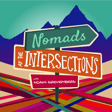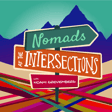
Normalize Unlearning (with Bree Contreras)
Bree (they/them) is a 20-something-year-old Black Queer non-binary nomad. In 2020, they cut their corporate strings to begin a life centered on having full autonomy of their time and purpose. Hottie, their renovated vintage RV, is now home to Bree and their two giant dogs. Aside from imagining a world without white supremacy, they fill their time with hiking, photography, writing, and documenting their journey on the road. In this episode, Bree challenges cis-normative views of identity, the discomfort of unlearning, and what it means to be intentional when creating inclusive spaces. Listen til the end to hear their simplistic perspective on how to navigate pronouns like a human being.
SOCIALS
Podcast @nomadsattheintersections
Community @diversify.vanlife
Host @irietoaurora
Guest @doesthiscountasvanlife
Stay tuned for the relaunch of Nomads at the Intersections, coming this Summer, 2024. Subscribe in your podcast feed and follow @diversify.vanlife and @nomadsattheintersectionspod to stay in the loop as more updates drop.
Enjoyed this episode? Leave us a 5-star rating in your podcast app, it’ll help other Nomads find us.
Nomads at the Intersections is hosted by Noami Grevemberg
A Diversify Vanlife production
Music by Smart Monkey Music
Podcast Cover Artwork by Karen Ceballos

